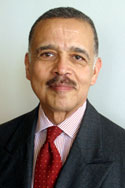ARCHIVES
OF EDITORIALS
April 22, 2004
Getting down to business
During Sen. Dianne Wilkerson’s recent 21st
Century Black Massachusetts Conference, several speakers noted
that African Americans have reached a new phase on their march
for full equality. In his keynote address, Jesse Jackson set forth
the significant issues in this march.
Jackson said that phase one was to end slavery, phase two was
to end racial discrimination, phase three was to secure the vote
where blacks were disenfranchised, and phase four is to build
wealth and create economic prosperity.
The first three phases are part of the civil rights movement,
and for the most part those goals have been accomplished. However,
because racial discrimination still exists and there continue
to be efforts to vitiate the power of the black vote, many blacks
are reluctant to acknowledge that they have won the civil rights
battle.
Those attitudes and strategies that brought victory for civil
rights will not be successful in the future. Blacks imposed upon
the moral conscience of America to do the right thing, and it
worked. Success required that whites grant to blacks those rights
and protections provided for everyone in the Constitution.
However, there is no moral imperative for whites to make blacks
wealthy. That can happen only with enormous discipline and self-effort.
This is quite different from the slave mentality which relies
on the beneficence of others for one’s welfare.
No matter how determined and ambitious, it is impossible for you
to succeed without some knowledge of how the financial system
works. For seven weeks in February and March, Gillette sponsored
a series of articles describing basic concepts of economics. Subjects
included: Scarcity, Opportunity Cost, Incentives, Private Property
Rights, Voluntary Exchange, Competition and Money.
This series was so well received that the Banner has decided to
launch a new feature entitled “Personal Finance and Business.”
Every other week there will be an article providing financial
advice for the working family, in terms that can be understood.
On the opposite page will be “Profiles of Success,”
articles about minority entrepreneurs, executives or professionals
who learned how to move ahead.
Remember, it’s not easy to acquire wealth or everyone would
do it. The Banner hopes that this new feature will help you
to succeed.
A step in the right direction
When Jesse Jackson ran for president in 1988, he electrified the
black electorate and amassed 1,218 delegates. In the recent Democratic
primary campaign, Al Sharpton finished with only 25 delegates.
While many African Americans were pleased that Sharpton raised
issues relevant to them, they seemed to be more focused, like
other Americans, on supporting a candidate who could beat George
Bush.
Another political development that so far has received little
attention is the organization of the hip-hop generation. There
are 40 million Americans in the 18 – 25 age group who represent
25 percent of the potential voter pool. Only half are registered
and only 36 percent of those bother to vote.
Russell Simmons and Dr. Benjamin Chavis have organized the Hip-Hop
Summit Action Network with the objective of creating a significant
voter bloc. The organization is traveling from city to city registering
young voters.
If HSAN can wake up black youth to the importance of voting, they
may accomplish something that eluded Sharpton.
Home
Page

